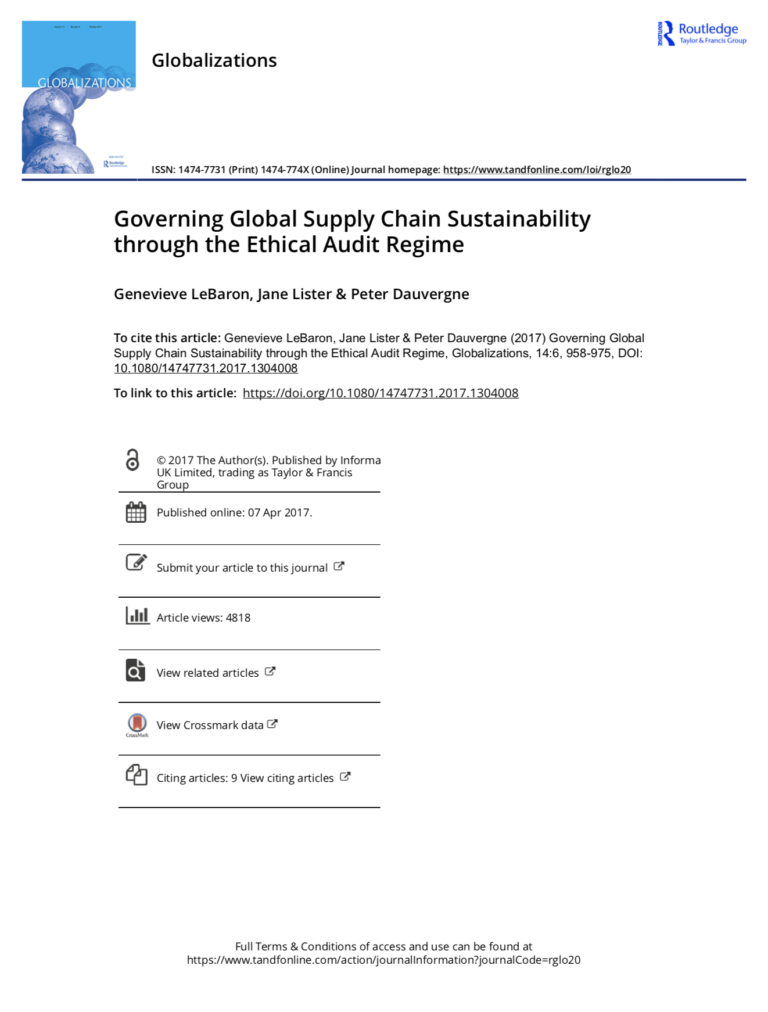Over the past two decades multinational corporations have been expanding ‘ethical’ audit programs with the stated aim of reducing the risk of sourcing from suppliers with poor practices. A wave of government regulation—such as the California Transparency in Supply Chains Act (2012) and the UK Modern Slavery Act (2015)—has enhanced the legitimacy of auditing as a tool to govern labour and environmental standards in global supply chains, backed by a broad range of civil society actors championing audits as a way of promoting corporate accountability. The growing adoption of auditing as a governance tool is a puzzling trend, given two decades of evidence that audit programs generally fail to detect or correct labour and environmental problems in global supply chains. Drawing on original field research, this article shows that in spite of its growing legitimacy and traction among government and civil society actors, the audit regime continues to respond to and protect industry commercial interests. Conceptually, the article challenges prevailing characterizations of the audit regime as a technical, neutral, and benign tool of supply chain governance, and highlights its embeddedness in struggles over the legitimacy and effectiveness of the industry-led privatization of global governance.

